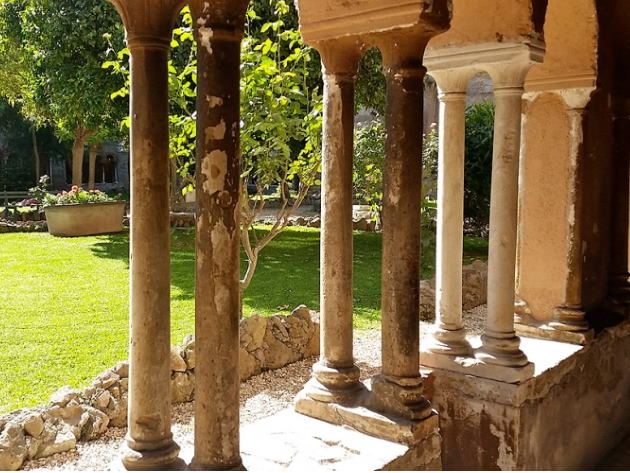
A hidden gem of Rome tucked away in the heart of Trastevere and dedicated to a saint who never existed: there is no such saint as St Cosimatus and the name is just the popular contraction and corruption of Cosmas and Damian, the saints to whom the church and monastery that are today part of the Nuovo Regina Margherita Hospital were dedicated. The complex boasts a millenary past and it was also known as “Little St Cosmas” to distinguish it from the basilica in the Forum, or with the suffix “Mica Aurea” - golden crumb, perhaps a reference to the yellow sands of the Janiculum hill.
Its foundation dates back to the 10th century even if the works for its construction ended in 1069, when Pope Alexander II consecrated the church, as a preserved epigraph records. In 1229 Pope Gregory IX assigned the monastery to the Camaldolese Benedictines who remained there until 1234, when it was granted to the Poor Clares. The entire complex was then radically renovated by Sixtus IV in 1475. The end of the monastery as a conventual seat dates back to 1891, when the complex was expropriated by the Municipality of Rome and turned into an almshouse for poor old people.
The original 13th-century gatehouse of the monastery can be seen in Piazza San Cosimato. A gabled porch with an archway supported by a pair of ancient Composite marble columns gives access to the courtyard in front of the church, characterized by a simple façade and an elegant 15th-century portal. In the courtyard there is an ancient granite basin transformed into a fountain in 1731. The interior, with a single nave and a beautiful wooden ceiling, underwent a total restoration in 1871 but retains some interesting artworks, such as the 15th-century fresco cycle by Antonio del Massaro showing Our Lady between St Francis and St Clare. A side chapel preserves an altar made up of fragments of the 15th-century funeral monument of the cardinal Lorenzo Cybo from the church of Santa Maria del Popolo, donated by Cardinal Alderano Cybo to the Poor Clares.
Entering the hospital, it is also possible to visit the two cloisters of the monastery. The first, built around 1240, is one of the largest in mediaeval Rome, with a quadrangular shape and two sides over 40 meters long. The north walk of the cloister contains many fragments of inscriptions, columns, sarcophagi and other carved stonework. A small Romanesque Campanile overlooks the cloister and the fifteenth-century Sala Capitolare opens up. The second cloister, smaller and higher than the first, was built at the time of Pope Sixtus IV.
Rione XIII - Trastevere
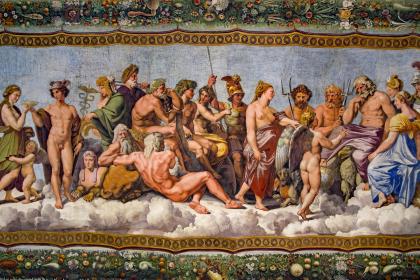
Der Janiculum-Hügel
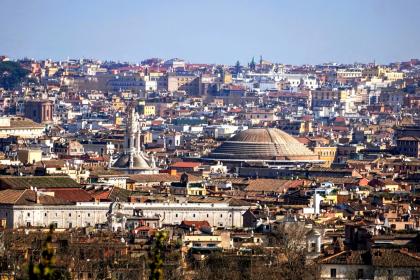
 Condividi
Condividi
Kirche San Pietro in Montorio
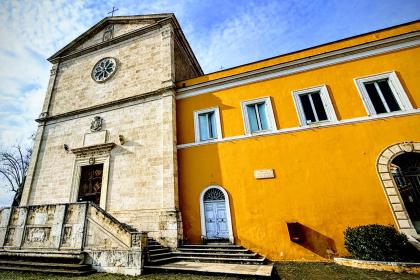
 Condividi
Condividi
Basilika Santa Maria in Trastevere
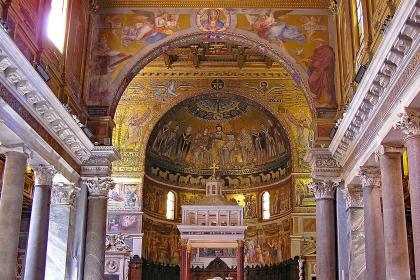
 Condividi
Condividi
Basilika Santi Cosma e Damiano
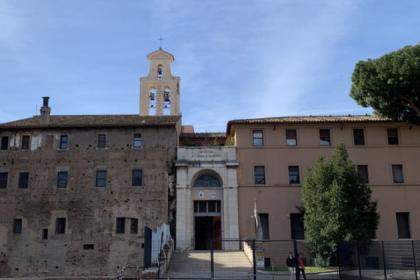
 Condividi
Condividi
Informationen
For the timetable of the masses and visiting conditions, please consult the contacts.
 Condividi
Condividi
Location
Um mehr über alle barrierefreien Dienste zu erfahren, besuchen Sie den Abschnitt barrierefreies Rom.











































